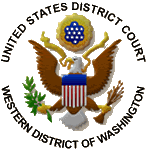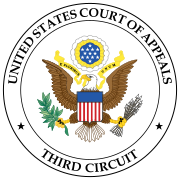A shield law is legislation designed to protect reporters' privilege. This privilege involves the right of news reporters to refuse to testify as to the information and/or sources of information obtained during the news gathering and dissemination process. Currently, the U.S. federal government has not enacted any national shield laws, but most of the 50 states do have shield laws or other protections for reporters in place.
Branzburg v. Hayes, 408 U.S. 665 (1972), was a landmark decision of the US Supreme Court invalidating the use of the First Amendment as a defense for reporters summoned to testify before a grand jury. The case was argued February 23, 1972 and decided June 29 of the same year. The reporters lost their case by a vote of 5-4. This case is cited for the rule that in federal courts, a reporter may not generally avoid testifying in a criminal grand jury, and it remains the only case in which the U.S. Supreme Court has considered the use of reporters' privilege.
Neither software nor computer programs are explicitly mentioned in statutory United States patent law. Patent law has changed to address new technologies, and decisions of the United States Supreme Court and United States Court of Appeals for the Federal Circuit (CAFC) beginning in the latter part of the 20th century have sought to clarify the boundary between patent-eligible and patent-ineligible subject matter for a number of new technologies including computers and software. The first computer software case in the Supreme Court was Gottschalk v. Benson in 1972. Since then, the Supreme Court has decided about a half dozen cases touching on the patent eligibility of software-related inventions.
State Street Bank and Trust Company v. Signature Financial Group, Inc., 149 F.3d 1368, also referred to as State Street or State Street Bank, was a 1998 decision of the United States Court of Appeals for the Federal Circuit concerning the patentability of business methods. State Street for a time established the principle that a claimed invention was eligible for protection by a patent in the United States if it involved some practical application and, in the words of the State Street opinion, "it produces a useful, concrete and tangible result."

In everyday language, puffery refers to exaggerated or false praise. In law, puffery is a promotional statement or claim that expresses subjective rather than objective views, which no "reasonable person" would take literally. Puffery serves to "puff up" an exaggerated image of what is being described and is especially featured in testimonials.
In re Aimster Copyright Litigation, 334 F.3d 643, was a case in which the United States Court of Appeals for the Seventh Circuit addressed copyright infringement claims brought against Aimster, concluding that a preliminary injunction against the file-sharing service was appropriate because the copyright owners were likely to prevail on their claims of contributory infringement, and that the services could have non-infringing users was insufficient reason to reverse the district court's decision. The appellate court also noted that the defendant could have limited the quantity of the infringements if it had eliminated an encryption system feature, and if it had monitored the use of its systems. This made it so that the defense did not fall within the safe harbor of 17 U.S.C. § 512(i). and could not be used as an excuse to not know about the infringement. In addition, the court decided that the harm done to the plaintiff was irreparable and outweighed any harm to the defendant created by the injunction.
United States v. Reynolds, 345 U.S. 1 (1953), is a landmark legal case in 1953 that saw the formal recognition of the state secrets privilege, a judicially recognized extension of presidential power.
White-Smith Music Publishing Company v. Apollo Company, 209 U.S. 1 (1908), was a decision by the Supreme Court of the United States which ruled that manufacturers of music rolls for player pianos did not have to pay royalties to the composers. The ruling was based on a holding that the piano rolls were not copies of the plaintiffs' copyrighted sheet music, but were instead parts of the machine that reproduced the music.
Reporter's privilege in the United States, is a "reporter's protection under constitutional or statutory law, from being compelled to testify about confidential information or sources." It may be described in the US as the qualified (limited) First Amendment or statutory right many jurisdictions have given to journalists in protecting their confidential sources from discovery.
Von Bulow v. Von Bulow, 811 F.2d 136, was a case appealed from a contempt ruling after a United States District Court rejected the claim of a reporter's privilege by Claus von Bulow and Andrea Reynolds.
In re Bilski, 545 F.3d 943, 88 U.S.P.Q.2d 1385, was an en banc decision of the United States Court of Appeals for the Federal Circuit (CAFC) on the patenting of method claims, particularly business methods. The Federal Circuit court affirmed the rejection of the patent claims involving a method of hedging risks in commodities trading. The court also reiterated the machine-or-transformation test as the applicable test for patent-eligible subject matter, and stated that the test in State Street Bank v. Signature Financial Group should no longer be relied upon.

Vernor v. Autodesk, Inc. was a case in the United States District Court for the Western District of Washington regarding the applicability of the first-sale doctrine to software sold under the terms of so-called "shrinkwrap licensing." The court held that when the transfer of software to the purchaser materially resembled a sale it was, in fact, a "sale with restrictions on use" giving rise to a right to resell the copy under the first-sale doctrine. As such, Autodesk could not pursue an action for copyright infringement against Vernor, who sought to resell used versions of its software on eBay. The decision was appealed to the United States Court of Appeals for the Ninth Circuit, which issued a decision on September 10, 2010, reversing the first-sale doctrine ruling and remanding for further proceedings on the misuse of copyright claim. The Ninth Circuit's decision asserted that its ruling was compelled by Ninth Circuit precedent, but observed that the policy considerations involved in the case might affect motion pictures and libraries as well as sales of used software.
Bilski v. Kappos, 561 U.S. 593 (2010), was a case decided by the Supreme Court of the United States holding that the machine-or-transformation test is not the sole test for determining the patent eligibility of a process, but rather "a useful and important clue, an investigative tool, for determining whether some claimed inventions are processes under § 101." In so doing, the Supreme Court affirmed the rejection of an application for a patent on a method of hedging losses in one segment of the energy industry by making investments in other segments of that industry, on the basis that the abstract investment strategy set forth in the application was not patentable subject matter.
Honest services fraud is a crime defined in 18 U.S.C. § 1346, added by the United States Congress in 1988, which states "For the purposes of this chapter, the term scheme or artifice to defraud includes a scheme or artifice to deprive another of the intangible right of honest services."

Cartoon Network, LP v. CSC Holdings, Inc., 536 F.3d 121, was a United States Court of Appeals for the Second Circuit decision regarding copyright infringement in the context of digital video recorders. Among other reasons, it is notable for disagreeing with the Ninth Circuit's holding in MAI Systems Corp. v. Peak Computer, Inc., regarding whether a momentary data stream is a "copy."
Inwood Laboratories Inc. v. Ives Laboratories, Inc., 456 U.S. 844 (1982), is a United States Supreme Court case, in which the Court confirmed the application of and set out a test for contributory trademark liability under § 32 of the Lanham Act.
CyberSource Corp. v. Retail Decisions, Inc., 654 F.3d 1366, is a United States Court of Appeals for the Federal Circuit case that disputed patent eligibility for the '154 patent, which describes a method and system for detecting fraud of credit card transactions through the internet. This court affirmed the decision of United States District Court for the Northern District of California which ruled that the patent is actually unpatentable.
Walker Process Equipment, Inc. v. Food Machinery & Chemical Corp., 382 U.S. 172 (1965), was a 1965 decision of the United States Supreme Court that held, for the first time, that enforcement of a fraudulently procured patent violated the antitrust laws and provided a basis for a claim of treble damages if it caused a substantial anticompetitive effect.

United States v. McMahon et al (9:93-cr-01276) is a 1994 United States District Court for the Eastern District of New York criminal court case brought against Vince McMahon, chairman of the World Wrestling Federation on suspicion of supplying illegal anabolic steroids to his professional wrestlers. The jury found McMahon not guilty on July 23, 1994.




